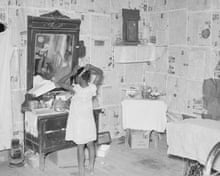Have you ever heard someone say, “He popped his clogs,” and wondered what it really means? It’s a phrase you might come across in movies, books, or conversations, but it’s not always clear.
Understanding this expression can help you grasp the meaning behind what’s being said—and even impress your friends with your knowledge. Keep reading, and you’ll discover where this odd phrase comes from and why people still use it today. Your curiosity is about to be satisfied!
Origin Of The Phrase
The phrase “popped his clogs” is a curious and colorful way to say someone has died. It sounds funny, but it has a story behind it. Knowing where this phrase comes from helps us understand its meaning better. The origin of “popped his clogs” traces back to old times and reflects cultural habits and language style.
Historical Background
“Popped his clogs” appeared in Britain in the early 20th century. The word “clogs” means wooden shoes once common among workers. These shoes were sturdy and noisy when walking. “Popped” means to burst or suddenly stop. The phrase suggests a sudden end, like shoes popping off.
Workers wore clogs daily, and the phrase grew from their life. When someone died, it was said they “popped their clogs” as a gentle, informal way to speak about death. It became popular in spoken English and later in writing.
Cultural Roots
The phrase reflects British humor and their way of softening harsh topics. Talking about death directly can be hard, so people use lighter phrases. “Popped his clogs” fits this style perfectly. It’s less scary and more casual.
Clogs symbolize working-class life, so the phrase connects with everyday people. It shows how language links to culture and daily experiences. The phrase remains in use because it is vivid and easy to understand.

Credit: www.theguardian.com
Literal Meaning
The phrase “popped his clogs” sounds unusual at first. It comes from two simple words, each with its own clear meaning. Understanding these words helps to see where the phrase comes from.
Let’s look at each word closely. This way, you can understand the phrase better.
Definition Of ‘clogs’
Clogs are a type of shoe. They are made from wood or heavy material. People wore them a long time ago. Often, clogs protected feet in work and farm jobs.
In some places, clogs were very common. They are strong and not easy to break. They cover the whole foot, making them safe and sturdy.
Meaning Of ‘popped’
The word “popped” means to break or burst suddenly. It can also mean to make a quick sound or movement. In this phrase, it suggests something happened fast and with a snap.
Think of a balloon popping or a bubble bursting. The action is quick and clear. “Popped” here adds a sense of suddenness to the phrase.
Figurative Meaning
The phrase “popped his clogs” is a British idiom. It means someone has died. The expression uses a metaphor to describe death in a lighter way. This makes the topic less heavy or sad. It is a casual and somewhat humorous way to talk about death.
Understanding the figurative meaning helps in grasping how people use this phrase. It is not about shoes or clogs literally popping. Instead, it refers to a person passing away, often unexpectedly.
Common Usage
“Popped his clogs” is mostly used in informal speech. People say it when talking about someone who died. It is common in the UK and heard in movies or TV shows. The phrase can soften the message, making it less direct.
It is not suitable for formal or serious situations. Usually, friends or family use it in casual chats. The phrase adds a touch of humor to a sad event.
Contextual Examples
Here are some examples to show how the phrase works:
- “Old Mr. Brown popped his clogs last night.”
- “Did you hear that Joe popped his clogs after the accident?”
- “We were sad when grandma popped her clogs, but we remember her smile.”
These examples show the phrase’s use in normal conversation. It helps people talk about death without sounding too harsh or sad.

Credit: dictionary.cambridge.org
Similar Expressions
Many English speakers use different phrases to say someone has died. These expressions often sound informal or funny. They help soften the serious news of death. Some phrases are unique to certain places. Others are used worldwide. Let’s explore some similar sayings to “popped his clogs.”
British Slang Alternatives
In Britain, people use many slang phrases for death. “Bought the farm” means someone passed away. “Kicked the bucket” is another common phrase. It paints a picture of a sudden end. “Carked it” sounds casual and a bit cheeky. “Gone to a better place” shows kindness and hope. These phrases add color to everyday talk.
Global Equivalents
Other countries have their own ways to say death. In the USA, “bit the dust” is popular. Australians say “croaked,” which means died. In India, “pushed up daisies” is a fun phrase. It suggests someone is buried in the ground. These global expressions make English rich and lively.
Usage In Modern Language
The phrase “popped his clogs” is an old British slang expression. It means someone has died. Even today, people still use it in different ways. It adds a light or humorous touch to a serious topic. Understanding how it appears in modern language helps you grasp its tone and use.
In Casual Conversation
People often use “popped his clogs” in informal talks. It sounds less harsh than saying “died.” Friends or family might say it to soften the news. Sometimes, it shows respect with a bit of humor. It is common among older generations but known by younger people too. The phrase can make a sad event feel a little easier to discuss.
In Media And Literature
Writers and creators use “popped his clogs” to add color to their work. It appears in books, movies, and TV shows. Characters might say it to show their background or mood. The phrase gives a story a local or old-fashioned feel. It helps readers and viewers connect with the setting. Using this phrase also adds personality to dialogue and narration.

Credit: dictionary.cambridge.org
Why It Appeals
The phrase “popped his clogs” has a special charm. It catches attention because it softens a serious topic. Talking about death can feel heavy and sad. This expression makes it easier to approach the subject.
Its appeal lies in how it lightens the mood. It adds a bit of humor and comfort. People often use it to avoid harshness and show respect in a gentle way.
Humorous Tone
The phrase uses humor to ease discomfort around death. It sounds playful, which can make people smile. Humor helps people feel less scared or upset. Saying “popped his clogs” is less direct and harsh. It feels like a friendly way to share sad news.
Euphemistic Nature
This phrase is a perfect example of a euphemism. It replaces the word “died” with something softer. Euphemisms help avoid shock or pain. They make difficult topics easier to discuss. “Popped his clogs” gives a light touch to a serious fact. It respects feelings while still sharing the truth.
Frequently Asked Questions
What Does “popped His Clogs” Mean?
“Popped his clogs” is a British slang phrase meaning someone has died. It is a lighthearted way to say someone passed away.
Where Did The Phrase “popped His Clogs” Originate?
The phrase likely comes from old British working-class slang. “Clogs” refers to wooden shoes, and “popped” means to die or kick the bucket.
Is “popped His Clogs” Used Formally?
No, this phrase is informal and mostly used in casual or humorous contexts. It is not suitable for formal or sensitive situations.
Can “popped His Clogs” Be Used For Animals?
Yes, people sometimes use it humorously for animals that have died. However, it is primarily used for humans in informal speech.
Conclusion
“Popped his clogs” means someone has died. It is a lighthearted way to say this. People use it mostly in the UK. Now you know its meaning and origin. You can understand it in stories or talks. Remember, it’s informal and not for serious moments.
Language has many fun phrases like this. Keep learning new expressions to sound more natural. Words bring culture and history alive. Stay curious and enjoy exploring English!

Madison Clark is a footwear expert and the voice behind MyStyleGrid.com. She specializes in honest shoe reviews, style tips, and practical guides to help readers find the perfect pair for any occasion. With years of experience in blogging and content creation, Madison makes footwear knowledge simple, stylish, and easy to follow.







